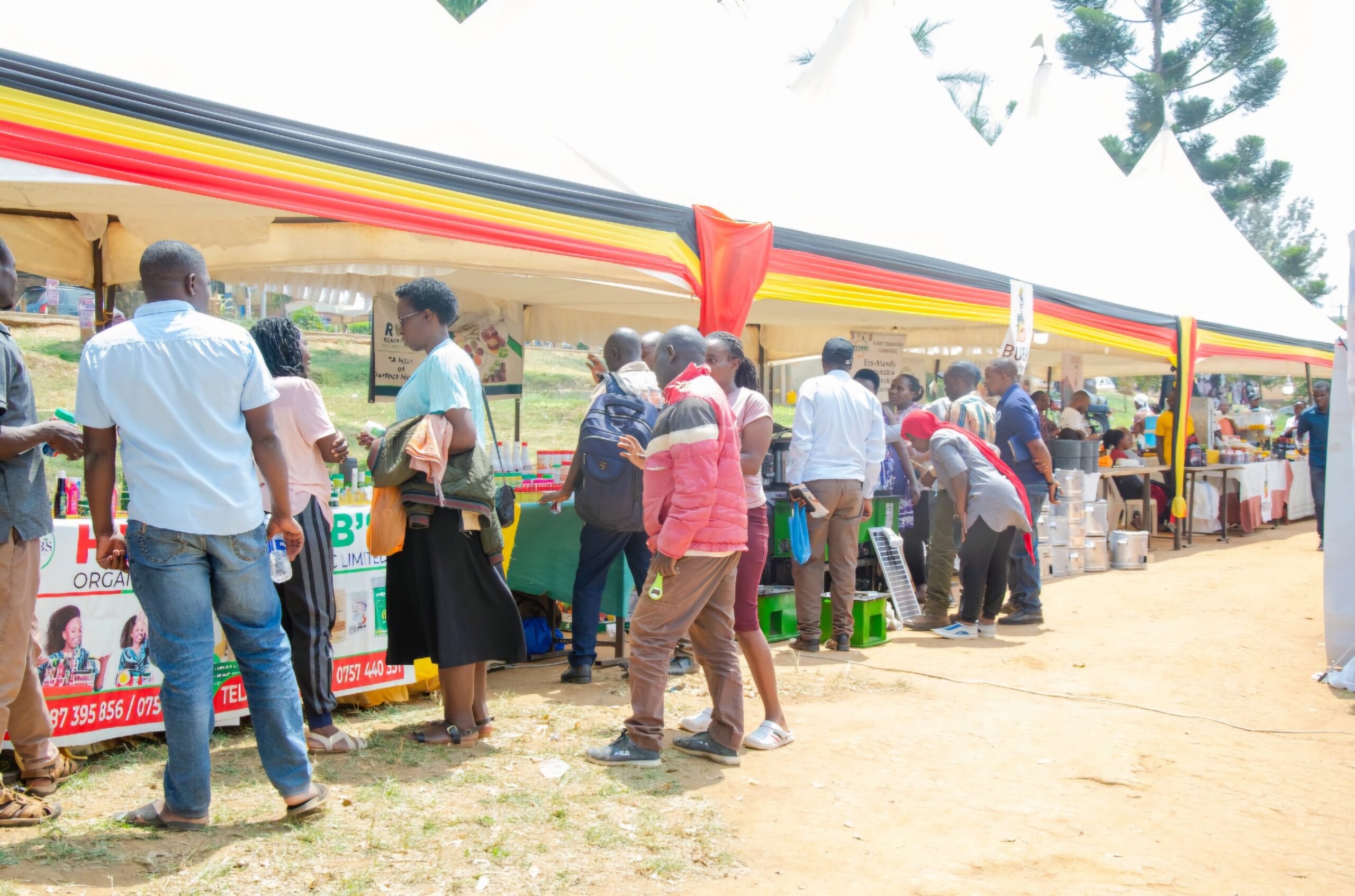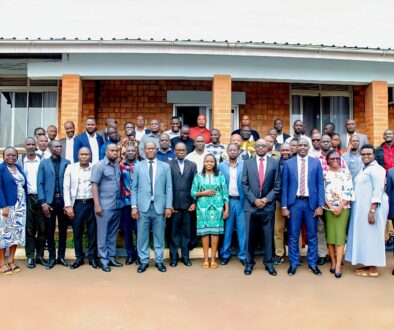Trade Ministry Boosts SMEs Production

Minister of State for trade Gen. Wilson Mbasu Mbadi launches the BUBU Magazine and Directory at the Western region BUBU Trade show in Mbarara city
The Minister of Trade, Industry and Cooperatives has reaffirmed the Ministry’s commitment to promoting local products and services. By implementing the Buy Uganda, Build Uganda (BUBU) Policy and Strategy, it substitutes imports and promotes exports.
On July 26th, Hon. Wilson Mbasu Mbadi officially opened the first-ever Regional Buy Uganda Build Uganda (BUBU) Trade Show 2025 in Mbarara. He urged Micro, Small and Medium Enterprises to take advantage of local expos and forums to engage with the government in promoting their products.
The three-day expo was held under the theme “Buy Uganda Build Uganda: Driving Uganda’s growth through sustainable Micro, Small and Medium Enterprises (SMEs)”, in cognisance of MSMEs’ contribution to economic growth and transformation.

The SMEs account for over 90% of Uganda’s private sector and employ nearly 2.5 million Ugandans, the majority of whom are the youth and women. He noted their challenges, including inadequate compliance with standards, funding and production technologies. These limit their competitiveness in the local, regional and international markets.
Addressing the challenges, the government has established regional laboratories, taking testing services closer to the MSMEs. Uganda National Bureau of Standards (UNBS) now operates a regional laboratory in Mbarara.
Through the Rural-Rural-Industrialisation Strategy, the Ministry has provided modern value addition equipment in the region to support MSMEs; milk processing facilities, carpentry and joinery and juice processing machinery.
The government, through Uganda Development Bank (UDB), has funded local manufacturers and contractors to support their operations, and set up enabling infrastructure, including good roads, electricity, and production technologies, among others, to enhance production and productivity.
The Public Procurement and Disposal of Public Assets Act has been revised to offer preferential treatment to local contractors and suppliers.
Foreign firms undertaking government-funded projects must partner with local companies to transfer skills and technology, whereas the government has invested in skilling programs, industrial parks, and equipment pools to support our local innovators and builders.
According to the Microeconomics and Fiscal Performance report FY 2023/24, released by the Ministry of Finance, Uganda has recorded steady growth in trade performance over the past decade, with total exports doubling from USD 4.4 billion in 2020 to USD 8.5 billion in 2024.
This trend reflects the strength of Uganda’s trade systems and the resilience of the private sector. Trade is one of the most significant pillars of the economy, contributing an estimated 43% to Uganda’s GDP and generating over 20% of the tax revenue.
This BUBU expo further promotes our collaboration to promote import substitution and export. The BUBU Strategy has improved market access for local products, and local products occupy 56 per cent of supermarket shelf space, up from 20% in 2015.

Government procurement of local products has increased to 60% from the target of 20% in 2015, and compliance of the local products with standards has also increased.
The construction sector is the most beneficiary through sub-contracting and public works, and opportunities mainly stem from public procurement, especially in road infrastructure projects. Significant benefits are also in pharmaceuticals and textiles.
Growth in local manufacturing investment
- 82 new bottled water industries were established.
- 209 sanitiser factories and 29 face mask factories have been set up.
- 2 new steel rolling mills, 3 tile factories, and 3 cement factories (Simba Cement, Kampala Cement, Metro Cement)
- One new salt factory: Kampala Salt Industry and Infrastructure Development Limited, and
- Emerging local production in electronics
Increased local capacity
- Steel rolling capacity grew from 886,000 metric tonnes to 1.7 million metric tonnes per year.
Reduced Trade Deficit
- Tiles import bill dropped by USD 28.5 million
- Tile exports earnings increased by USD 3.05 million
“We can achieve better trade performance and competitiveness by supporting MSMEs in the coffee, tea, fish, maize, sugar, fruits, vegetables and horticultural sectors, from this region, for export promotion,” Mbadi encouraged the entrepreneurs.



